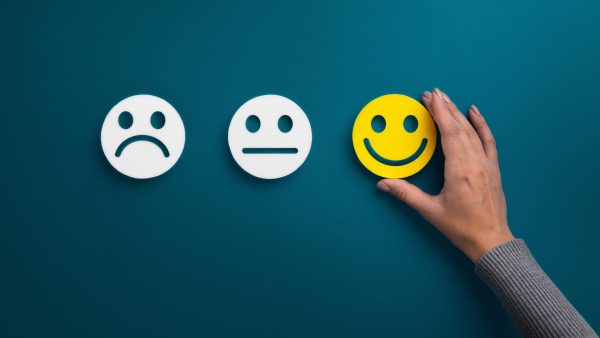Emotions are not under conscious control, which means that they can sometimes be unwelcome. Most people tend to avoid recognizing and coping with painful or conflicting emotions in their lives, only to realize that, in the end, it is impossible to get rid of an emotion. Understanding emotions is not an easy task and lack of this understanding is often the cause of anxiety and depression.
Is this an emotion or a feeling? – The first step to answer this question is to perceive the difference between having an emotion and feeling this emotion. According to Dr. Antonio Damasio, a neuroscientist and head of USC Brain and Creativity Institute, defines emotion as the execution of a very complex program of actions.
Some actions are actually movements, e.g., change your face expression in fear, or movements that are internal, that happen in your heart or in your gut, and movements that are actually not muscular movements, but rather, releases of molecules. And an emotion consists of a very well-orchestrated set of alterations in the body that has, as a general purpose, e.g., making life more survivable by taking care of a danger or an opportunity, either/or, or something in between.
On the other hand, a feeling is “the step further” that comes after the emotion: it is a portrayal of what is going on in the organs of the body when we experience an emotion.
So (feeling) it’s really the next thing that happens. If you have just an emotion, you would not necessarily feel it. To feel an emotion, you need to represent in the brain in structures that are actually different from the structures that lead to the emotion
…he explained.
Why are emotions important?
While we may not observe it, emotions drive every little decision and action of our lives by being part of a complex system that helps us decide what we should avoid and what we should approach. Except for helping us keep lasting relationships with other people, they also help us to understand others better while helping others to understand us better as well. However, from drug prescriptions to endless social media scrollings, the modern world is shaped in a way that it constantly helping us to deal with our emotions, rather than embrace them. Although our emotions functioning is to help us, we still are prone to not giving them the attention they need.
Thwarting emotions is not good for mental or physical health. Research presented by TIME magazine showed how positive emotions can be good for our health. A total of 175 middle aged adults were asked by researchers to keep a daily log of their emotional experiences for a month, recording how often and how strongly the experienced each of 32 emotions -16 positive and 16 negative. The study showed that people who had the widest range if positive emotions had also the lowest levels of inflammation. Interestingly, even if the overall frequency of positive emotions was the same, the people with the widest range of positive emotions had less inflammation than those with lowest range, which proves the link between happiness and health.
4 techniques to help understand your feelings better
Don’t judge your feelings: Start by being more open-minded to what you think and feel. Being ashamed of our feelings is the most common mistake that leads us away from confronting them. If you start working with yourself, you will realize that sometimes, it is not the emotions themselves causing you to suffer, but your judgment of those emotions and the desire to get rid of them.
Practice Mindfulness: Mindfulness is the psychological process of bringing one’s attention to experiences occurring in the present moment, typically through meditation. Meditation is a practice where people focus their mind on a particular object in order to achieve a mentally clear and emotionally calm state, reduce stress, anxiety, depression, and pain.
Talk to others: have you ever experienced the sense of clarity after openly discussing an issue with people you trust? We may not realize it immediately, but open conversations help us to process our emotions better by looking at them from a different angle.
Talk to experts: Sometimes, we find it hard to recognize or accept our emotions, no matter what our close people tell us. No one knows better that a therapist how to guide you in order to recognize your emotions; this is the very essence of therapy after all.
Remember, the more connected you are with yourself, the easier it is to cope with life challenges, as you will be able to perceive why some things impact you in a different way than others.
Did you know?
The 5 core emotions are:
Joy
Fear
Sadness
Disgust
Anger

